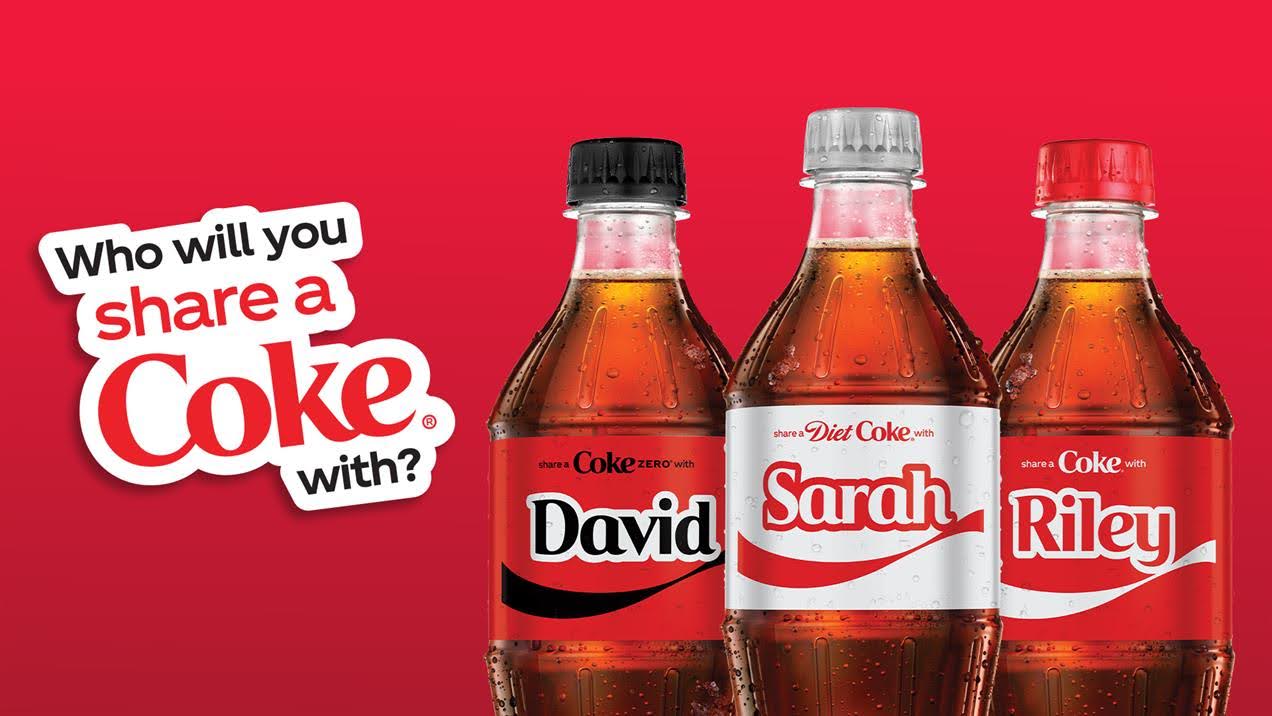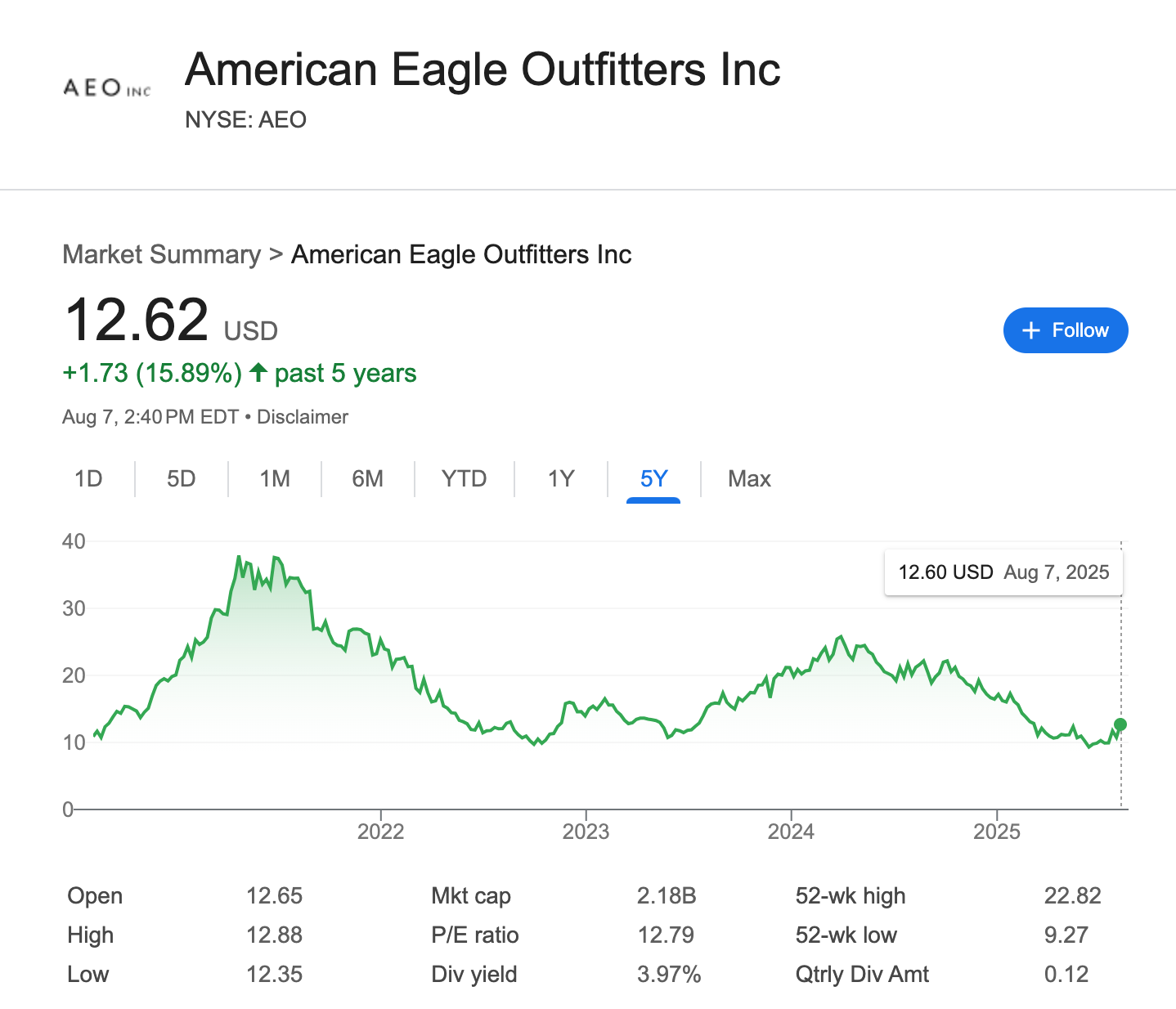Was the Sydney Sweeney Ad Even Good Marketing? The Case for Relatability Over "Be Like Me" Marketing
← Back to Blog
- By
unknown
13 Aug, 2025
In all the important political critique of the Sweeney ads, one thing’s still being overlooked, was it even good marketing? We often see ad campaigns falling into two categories:
- “Be Like Me” Campaigns
- “I’m Like You” Campaigns
“Be Like Me” campaigns aim to present an idealized image– making you want to buy the product in hopes of achieving that same look or lifestyle. This type of marketing is often seen in beauty and fashion.
On the other hand, “I’m Like You” campaigns aim to connect with the audience by being relatable—whether that’s showcasing a situation the audience has experienced or a body type that looks more like theirs.
So, let’s look at the Sydney Sweeney American Eagle ad from a marketing perspective.
Maybe you’re like me and deal with things like acne, anxiety, or a body type that doesn’t fit conventional beauty standards. My experience doesn’t align with society’s typical ideals of perfection, but I still consider myself fortunate in many ways, especially since my family isn’t predisposed to cancers or serious genetic illnesses.
Even without the controversy surrounding ads like the Sydney Sweeney campaign, I wonder how many people feel alienated by a focus on something we have no control over—something that can even be the source of lifelong struggles or health issues. The ad also seems to imply that Sweeney’s genetics are to be idealized (and here lies the controversy).
My question from purely a marketing perspective is: when brands push the "be like me" messaging, are they reaching their audiences, or leaving them feeling disconnected?
The Problem With the "Be Like Me" Marketing Strategy
Many brands, especially in luxury, beauty and fitness, have turned to aspirational marketing to persuade consumers: “Buy this product because you should want to be like me.” In these campaigns, “perfect” looking models or celebrities living seemingly flawless lives invite consumers to purchase their way into this ideal world. While this approach can create an emotional connection, it sometimes falls flat. Here’s why:
1. Alienating Your Audience
When a brand places too much focus on perfection—whether in body type, wealth, or lifestyle—it risks alienating large segments of its potential customer base. If the aspirational figure in the ad is far removed from the viewer’s reality, the product starts to feel irrelevant. Rather than inspiring, it may frustrate or discourage potential customers.
2. Making Assumptions
“Be Like Me” marketing has to make big assumptions about what people want to be like. Sometimes this isn’t a far stretch. Everyone wants to look good, right? But brands also make assumptions about what people want to look like, what they want to do with their time and what they want from life. This can run the risk of alienating more people than it reaches, as those assumptions probably aren’t accurate for a growing number of people.
3. Perpetuating Unrealistic Standards
By showcasing unattainably “perfect” bodies or lifestyles, these ads can negatively affect consumer self-esteem. Ads that make people feel like they need to look or live a certain way to "fit in" contribute to the beauty and lifestyle standards that many are trying to challenge.
4. Lack of Authenticity
Today’s consumers are looking for brands that feel genuine. They want to connect with brands that reflect their own lives, struggles and aspirations, not a version of reality that feels out of reach. Ads that are too perfect often come off as inauthentic, making it harder for the audience to see themselves in the brand.
5. Exclusivity and Elitism
Aspirational ads often focus on luxury and unattainable perfection. This can make average consumers feel that the product is not for them. When a brand’s messaging feels out of touch, it alienates those who don’t identify with what’s portrayed in the ad.
6. Eroding Brand Loyalty
When marketing feels disconnected from the realities of everyday consumers, it’s difficult for a brand to build long-term loyalty. Brands that focus on relatable, inclusive imagery have a much better chance of fostering authentic connections with their audiences.
Let’s Look at Another Case of “Be Like Me” Marketing Gone Wrong

Peloton’s Marketing: A Case Study in Unrealistic Aspirations
Peloton is another company that’s faced criticism for presenting an idealized, aspirational lifestyle in its marketing. In Peloton’s early ads, the bikes were often featured in sleek, upscale homes with modern interiors, giving the impression that Peloton was only for the affluent or those with the perfect lifestyle.
In 2019, the release of "The Gift That Gives Back" ad brought these issues to the forefront. The ad showed a woman receiving a Peloton bike from her husband, documenting her fitness journey and culminating in a "transformation" that seemed unrealistic, since she was already fit. The ad’s premise that even those who are already in good shape need to change or improve alienated many viewers. The setting of the ad—an expensive, minimalist home—only reinforced the perception that Peloton was a product for the wealthy elite, leaving many consumers feeling excluded.
Backlash and Impact
The backlash was swift and damaging. Peloton’s stock price dropped by about $1.5 billion after the ad’s release and the company had to respond to criticism over body shaming, sexism and elitism. This controversy underlined a key problem with aspirational marketing: it can backfire, especially if it doesn’t resonate with the average consumer.
The Power of “I’m Like You” Relatable Marketing
So, if “Be Like Me” marketing doesn’t work, what does? “I’m Like You” marketing focuses on showcasing real people and real scenarios that reflect the diversity of the audience. These ads prioritize authenticity, inclusivity and connection over perfection. And it’s working.
Why Relatable Marketing Works
- Authenticity and Trust Consumers today are more skeptical and discerning. They want to see themselves reflected in the brands they support. Real people, not airbrushed models, create stronger emotional connections. Relatable marketing fosters trust because it feels more honest and grounded.
- Celebrating Progress, Not Perfection Instead of selling an unattainable ideal, relatable marketing celebrates the journey. It’s not about "perfection" but about the real progress that comes with using the product. This approach appeals to people’s actual needs and experiences.
- Inclusivity and Representation Relatable marketing shows that brands care about their customers’ lives, not just their wallets. By showcasing diverse body types, ages, ethnicities and lifestyles, brands can connect with a wider audience and create a sense of belonging.
- Real-World Benefits Instead of promising a perfect life, relatable ads highlight how the product improves consumers' daily routines. It’s about solving problems and providing value in real, everyday situations.
Examples of Successful Relatable Marketing Campaigns
1. Dove – “Real Beauty” Campaign (2004)

Dove’s “Real Beauty” campaign changed the conversation about beauty standards. The campaign featured women of all shapes, sizes and ages, challenging the traditional, narrow standards of beauty. By embracing diversity and promoting self-esteem, Dove resonated with women who felt ignored by traditional beauty advertising. The result? A $4 billion boost in sales over the next decade.
2. Coca-Cola – “Share a Coke” Campaign

Coca-Cola personalized its product by replacing its logo with popular names. This simple but effective idea made the product feel more personal and relatable, allowing consumers to find and share Coke with people they cared about. This campaign helped reverse years of declining sales in the U.S. market.
3. Nike – “Find Your Greatness” Campaign

Nike’s “Find Your Greatness” campaign focused on everyday athletes, emphasizing that greatness isn’t reserved for the elite. This campaign tapped into the personal achievements of regular people, celebrating individual milestones rather than unattainable perfection.
Research Supporting Relatable Marketing
Research backs up the shift toward relatability. A 2024 study by iStock found that consumers increasingly prefer relatable content over unattainable perfection in advertising. Ads that feature real people lead to higher consumer engagement and emotional connection. Similarly, a study from the Journal of Consumer Research showed that consumers are more likely to trust and engage with ads that feature relatable models and everyday scenarios.
American Eagle is seeing success. But does short term success mean brand sustainability?
Following the release of the Sydney Sweeney ad, American Eagle's stock experienced a notable surge, increasing by 24%, its most significant gain since 2000 . Additionally, the brand reported that the featured jeans sold out rapidly, indicating a strong initial consumer response.
However, this uptick raises questions about its sustainability. Historically, American Eagle has been recognized for its inclusive marketing efforts, particularly through its Aerie brand, which promotes body positivity and diversity. This shift towards a more exclusive, idealized portrayal in the Sydney Sweeney campaign may alienate the very audience that has been loyal to the brand's inclusive ethos.
For example, in 2021 American Eagle’s stock soared as it continued to build on their commitment to inclusivity and body positivity with it’s #AerieREAL Voices campaign, featuring a diverse group of ambassadors, including Olympic gold medalist Aly Raisman, actress Antonia Gentry, country singer Kelsea Ballerini, the NaeNae Twins and the Rollettes, a wheelchair dance team.

They also acquired Quiet Logistics for $350 million in November 2021, a move aimed at enhancing its supply chain capabilities and improving operational efficiency, which was another piece of its stock market boom during that time.

Why Relatability Wins Long Term
The story of Peloton’s marketing struggles, coupled with the backlash against Sydney Sweeney’s ad, illustrates the dangers of “Be Like Me” marketing when it feels out of touch with the realities of your audience. In contrast, brands that embrace “I’m Like You” marketing, like Dove, Coca-Cola and Nike, have seen greater success by reflecting the diversity and authenticity of their customers.
In today’s world, where consumers are looking for real connections and genuine value, relatability is a winning marketing strategy. When brands make the effort to connect with their audience in meaningful, authentic ways, they build trust, loyalty and lasting success.




